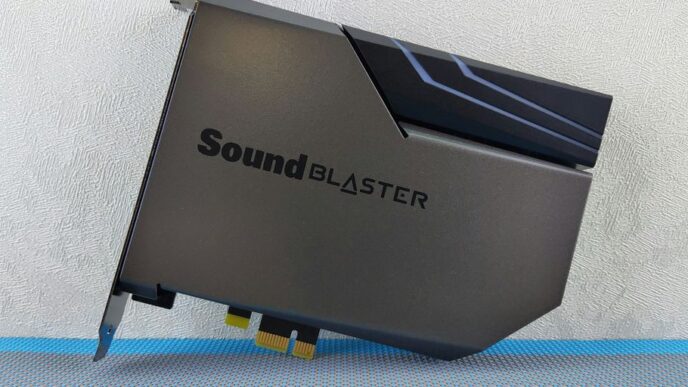Welcome to a fascinating exploration of the intersection between neurotechnology and mental health. Have you ever wondered what happens inside our brains during the experience of mental disorders? Neurotechnology offers us a window into the intricate workings of the mind and holds the potential to revolutionize our understanding and treatment of these conditions. In this blog post, we embark on a journey through the realm of neurotechnology, delving into its role in unraveling the mysteries behind mental disorders and paving the way for more effective interventions.
Introduction:
Discover the intriguing world of neurotechnology and its potential to transform mental healthcare. From unraveling the mysteries behind conditions like depression and anxiety to developing innovative therapies for schizophrenia and bipolar disorder, join us on a journey through the exciting realm of neurotechnology’s impact on mental health.
Understanding Neurotechnology: Unveiling the Connection Between the Brain and Technology
In our ever-evolving world, an innovative field known as neurotechnology has emerged to unravel the intricate relationship between the human brain and technology. This rapidly advancing discipline employs sophisticated tools and techniques to explore, measure, monitor, and manipulate various aspects of brain activity. By delving into the realm of neurotechnology, we gain remarkable insights into the inner workings of the brain and pave the way for groundbreaking advancements in various fields. Join us on a journey to understand the essence of neurotechnology and its profound implications for our understanding of the human brain and its interaction with technology.
Exploring Mental Disorders:
By utilizing neuroimaging techniques such as functional magnetic resonance imaging (fMRI) and electroencephalography (EEG), neurotechnology offers insights into how different regions of the brain function and communicate with each other. This knowledge helps us understand mental disorders like depression and anxiety better.
Innovative Treatment Approaches:
Neurotechnology also presents innovative treatment approaches for mental disorders. Transcranial magnetic stimulation (TMS) applies magnetic fields to stimulate nerve cells in the brain and has shown promise in treating depression when other methods prove ineffective. Neurofeedback allows patients to observe their brain activity in real-time and learn how to regulate it, offering potential benefits for conditions like ADHD, depression, and anxiety.
Unveiling the Neural Basis of Mental Disorders:
Neurotechnology has revolutionized our understanding of mental disorders by examining brain function through techniques such as neuroimaging and electrophysiology. Studies have revealed differences in brain activity between individuals with mental disorders and those without. For instance, reduced activity in specific brain regions is associated with depression, while heightened activation is observed in certain regions in individuals with anxiety disorders. Longitudinal studies help researchers track the progression of mental disorders, leading to more personalized and effective treatment plans.
Transformative Treatment Modalities:
Neurotechnology enables transformative treatment modalities for mental disorders. Virtual reality therapy immerses patients in virtual environments that elicit specific emotional responses, assisting them in confronting and overcoming fears or anxieties. Deep brain stimulation (DBS) involves implanting electrodes that deliver electrical impulses to targeted areas of the brain, rewiring neural pathways and successfully treating severe cases of OCD and Parkinson’s disease.
The Potential and Challenges of Neurotechnology in Mental Health:
Neurotechnology has the potential to significantly advance our understanding and treatment of mental disorders. By delving into the intricate relationship between the brain and technology, this emerging field offers valuable insights into brain mechanisms, leading to the development of personalized treatment plans and targeted therapies. However, as with any transformative field, there are challenges that need to be addressed for its successful implementation.
One of the key advantages of neurotechnology is its ability to provide valuable insights into the complexities of the brain. Through advanced tools and techniques, researchers and clinicians can examine brain activity patterns and connectivity, gaining a deeper understanding of the underlying mechanisms driving mental disorders. This understanding enables the development of personalized treatment plans tailored to the specific needs of individuals, enhancing the effectiveness and precision of therapeutic interventions.
Neurotechnology also opens up new possibilities for innovative treatment approaches. Techniques like neurofeedback allow patients to observe their own brain activity in real-time, enabling them to regulate their mental states and potentially benefitting those with conditions such as ADHD, depression, or anxiety. Additionally, non-invasive methods like transcranial magnetic stimulation (TMS) and invasive approaches like deep brain stimulation (DBS) provide targeted stimulation to specific brain regions, offering potential relief for symptoms associated with conditions like depression, obsessive-compulsive disorder (OCD), and Parkinson’s disease.
Furthermore, the development of personalized approaches based on individual brain function variations poses another challenge. Each person’s brain exhibits unique patterns and responses that can significantly differ. To effectively tailor neurotechnological interventions, sophisticated algorithms and techniques are required to accurately assess and adapt to individual brain characteristics. Researchers and clinicians need to continue advancing personalized approaches to maximize the effectiveness and outcomes of neurotechnological treatments.
Conclusion:
Neurotechnology has emerged as a promising field for understanding and treating mental disorders. Through neuroimaging techniques and neuromodulation devices like TMS and DBS, we gain unprecedented insights and innovative treatment options. Although challenges persist, the future of mental healthcare looks bright as neurotechnology continues to unlock new possibilities. As we navigate this dynamic landscape, we anticipate further breakthroughs that will enhance our understanding and treatment of neurological disorders, ultimately improving the lives of millions worldwide.













